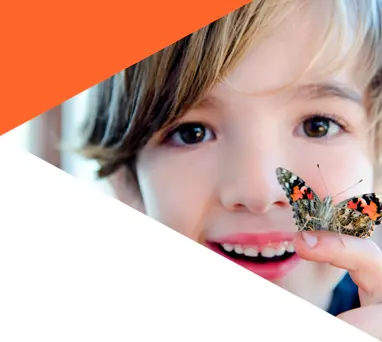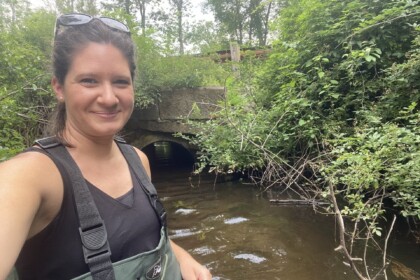
Projects & Materials

STEM UNIT: Sensemaking in Cape Cod's Local Environment

These lessons were created for life science students in grade 9. The lessons were developed by Elizabeth Hanchuruck through her 2023 Teacher-in-Residence with the Barnstable Clean Water Coalition in Osterville, MA.
The interconnectedness of nature is profound. One small change in the environment can impact all other aspects of the environment because of this interconnectedness. Humans also play a role in altering and even the increasing, or decreasing, the resiliency of the environment. When in nature, and with my field experiences with BCWC, I observed an overarching theme of “sensemaking." Sensemaking, which is one of the key scientist skills in Next Generation Science Standards (NGSS), is the process by which we make sense of the world around us through data collection and observations. I was hopeful these sensemaking lessons will bolster student thinking about their local environment.
Lesson 1 explores symbiosis through sensemaking activities. Lesson 2 surveys biodiversity and exploring invasive species through sensemaking activities. Lesson 3 focuses pollution’s role in environments and sensemaking around a nutrient (in this case Nitrogen) also being a pollutant due to human activity. Lesson 4 is the planned activities for the CC STEM Network awarded field trip through the Teacher in Residence program. On the field trip, students participated in a biodiversity survey and observing progress of a restoration project, which will provide hope for students looking at local projects designed to lessen historical human impact.
All of these assorted lessons were designed from experiences with BCWC, a local organization that is very committed and busy in projects educating the community on lessening human impact, bog restoration of 55 acres on the Marstons Mills River watershed, the Massachusetts Oyster Project with an educational upweller, promoting ecological landscaping, various monitoring and data collection at varying aquatic sites and local properties. Elizabeth Hanchuruck worked closely with the staff of the BCWC including Luke Cadrin and Livia Graham.
The lessons all have connected Life Science (Biology) Massachusetts State Standards, specifically those focused on Ecology and Evolution.
Resources
-
Sensemaking In Cape Cods Local Environment Unit Guide 1
1A Symbiosis Examples
1B Symbiosis Dramatic Role Play
1C Ants And Symbiosis From Around The World
2A Invasive Species And Biodiversity Sensemaking
2B Merlin Bird Id Log
3A Pollution Independent Card Sort
3B Can A Nutrient Be A Pollutant
4 Field Trip To Bog Restoration And Fuller Farm